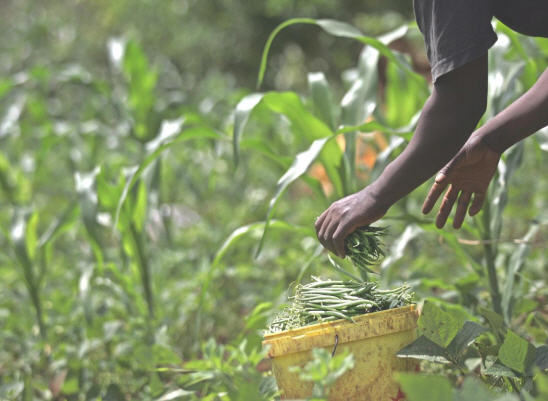|
![]()
| Global land use Issue1 #117988 Examining the state of the land across the world, including issues such as soil degradation, the role of food production alongside other competing uses and demands on land, and the policy responses necessary to encourage sustainable and multi-functional land use. | 
Food price volatility, the theme of the first conference in Wilton Park’s series ‘Agriculture, Food and Land Use: The International Policy Challenges’, is one of a number of factors that have brought land use back onto the centre stage of global policy concern. Land and its effective management is essential to food production and is vitally important to a range of other services too. Land is a finite resource and the way that it is managed can enhance or radically reduce its productivity and sustainability with very long term consequences. The second conference in the series – which took place at Wilton Park on Monday 26 September to Wednesday 28 September – examined the state of the land across the world reflecting on the evidence base on issues such as soil degradation, considering the role of food production alongside other competing uses and demands on land, and exploring the international and national policy responses necessary to encourage sustainable and multi-functional land use. Summary "As a finite resource, land requires careful management and involves complex policy choices at national and international level. Land is at once a global and a local issue. Itsuses in the 21st century are affected by many factors including climate change, population growth, increased urbanisation, high energy costs, dietary change, water scarcity, and within agriculture, competition for land between food, feed and industrial uses such as biofuels, making it an increasingly global concern.
The conference considered the world’s uneven distribution of arable land; the state and benefits of its soils; the role of ecosystems services; the impacts of biofuel production on land use patterns; technologies such as genetic modification and hydroponics to improve yields and/or reduce the need for land; and investment in land abroad for food production and speculative purposes.
In spite of the relationship between soils and human and plant health, and their role in ensuring food security, soils have been largely neglected in policy and educational spheres due to a lack of political and public interest. Effective soil-related policies require action plans, implementation mechanisms, and international cooperation.
Ecosystems provide a range of services from food to recreational benefits. Ecosystems services are often seen as separate from food production, so integrated policies, which support farmers and take land use determinants into account, are needed. Ecosystems services were also considered from a land manager’s perspective, for whom a business approach is the only way to scale up successful initiatives.
The impacts of biofuel production on land use vary, so assessment needs to be cropspecific. Demand for biofuels was seen to be policy- rather than market-driven, as governments have invested heavily, both financially and politically, in the development of biofuel industries. This means their ongoing production is thought to be inevitable, including by environmental campaigners, who now lobby for stringent sustainability standards. Changes in the aviation industry are likely to lead to greater use of biofuels under the European Union Emissions Trading Scheme. Competition for land between food and biofuels is being tackled in Brazil through land management practices such as agroecological zoning.
Recent overseas land investments for food and/or biofuel production were discussed with particular reference to Africa. Features of these investments include the scale and speed of the transactions; the secrecy and power asymmetries often present in the negotiation process; misapprehensions about ‘empty’ or ‘vacant’ land; and the lack of awareness by local users that land has been sold or leased. There is growing concern that land acquisitions are taking place in countries with weak land governance, where traditional methods of land ownership and allocation do not involve conventional land titles, which raises complex questions about land ownership, its use, and future food security.
Investment in Africa is welcome but effort needs to be made to ensure that it benefits local populations and that their claims to land and other natural resources are not ignored. The Food and Agriculture Organization-led international voluntary guidelines on the topic, due to be finalised in October 2011, are intended to provide a framework on which investors and local stakeholders can draw. Rwanda’s National Land Policy, implemented in 2005, which converts all types of land tenure to one statutory form, was commended.
The conference concluded by looking at the debates surrounding genetic modification. It was seen to be one of several available solutions to raising food production, but overcoming negative, social and political attitudes about the approach is challenging. Hydroponics and aquaponics were also discussed and examples of pioneering work in Saudi Arabia were highlighted."
|
|
|